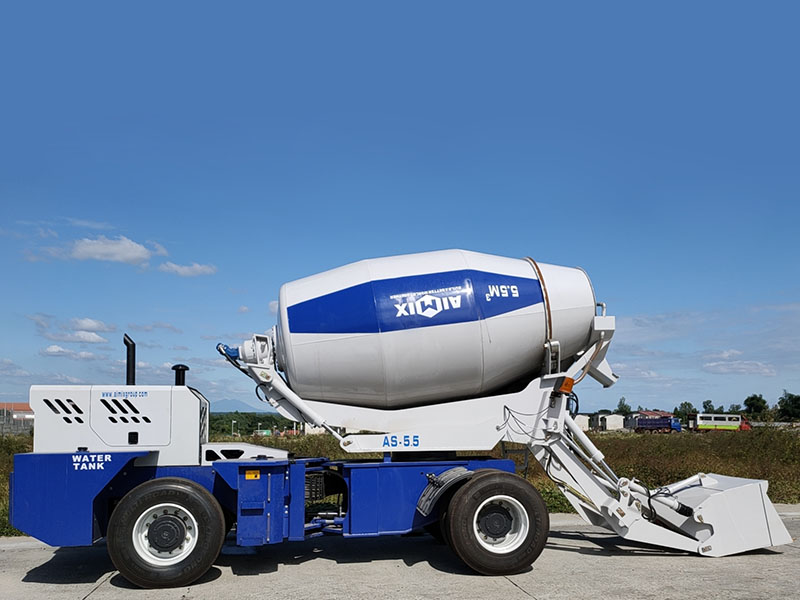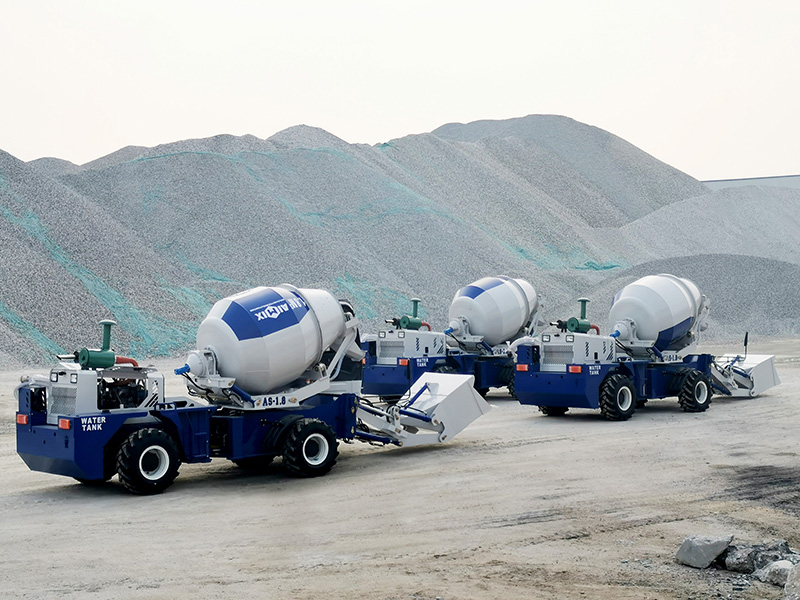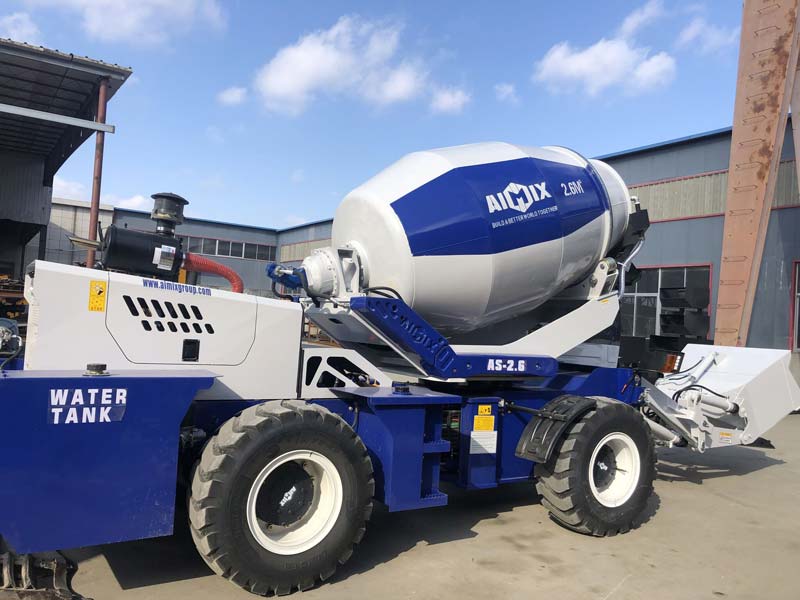Choosing the right self-loading concrete mixer can significantly impact your construction project’s efficiency and quality. This guide provides valuable insights into the key factors you should consider when purchasing a self-loading concrete mixer.

Understanding Your Project Requirements
Before purchasing a self-loading concrete mixer, you must understand your project requirements. This step ensures you choose a mixer that meets your specific needs.
Project Scale
Consider the scale of your project. Large-scale projects require mixers with higher capacity and output. Small-scale projects may benefit from smaller, more maneuverable mixers.
Assessing your project scale helps you determine the appropriate size and capacity of the mixer. This decision ensures efficient and timely completion of your tasks.
Site Conditions
Evaluate the conditions of your construction site. Rough terrains and tight spaces require mixers with advanced mobility features.
Choosing a mixer suited to your site conditions enhances maneuverability and efficiency. Ensure the self-loader mixer can navigate the specific challenges of your construction site.
Key Features to Consider
Self-loading concrete mixers come with various features that impact their performance and usability. Understanding these features helps you make an informed decision.

Mixing Capacity
Mixing capacity determines the volume of concrete the mixer can handle. Higher capacity mixers are ideal for large projects, while smaller mixers suit smaller tasks.
Consider your project needs when choosing the mixing capacity. A self-loading concrete mixer truck with the right capacity ensures efficient and continuous concrete production.
Engine Power
Engine power influences the mixer’s performance and ability to handle heavy loads. Higher horsepower engines provide better efficiency and speed.
Choose a mixer with sufficient engine power for your tasks. A powerful engine ensures smooth and efficient mixing, even under demanding conditions.
Loading Mechanism
The loading mechanism affects the ease and speed of loading materials into the mixer. Automatic loading systems offer precision and consistency.
Consider mixers with advanced loading mechanisms. These features reduce manual labor and enhance the overall efficiency of the mixing process.
Mobility and Maneuverability
Mobility and maneuverability are crucial for on-site operations. Four-wheel drive systems and advanced suspension technologies improve the mixer’s ability to navigate rough terrains.
Choose a mixer with features that enhance mobility. Proper maneuverability ensures the mixer can easily move around the construction site.
Control Systems
Modern self-loading concrete mixer trucks come with advanced control systems. Touchscreen interfaces and programmable controls provide ease of operation and customization.
Look for mixers with user-friendly control systems. These features make it easier to manage the mixing process effectively.

Evaluating Quality and Durability
Quality and durability are essential when purchasing a self-loading concrete mixer. Investing in a high-quality mixer ensures long-term performance and reliability.
Build Quality
Assess the build quality of the mixer. High-quality materials and robust construction enhance the mixer’s durability and lifespan. For example, Aimix manufacturer uses high-quality materials, so the production of the self-loader mixer is very durable and reliable, you can click on this link to learn about it:https://aimixgroup.com/.
Choose mixers from reputable manufacturers known for their quality. A well-built mixer withstands the rigors of construction work and provides reliable performance.
Maintenance Requirements
Consider the maintenance needs of the mixer. Low-maintenance mixers reduce downtime and operational costs.
Regular maintenance ensures the mixer remains in optimal condition. Choose a mixer with accessible components and easy maintenance procedures.
Cost Considerations
Cost is a significant factor when purchasing a self-loading concrete mixer. Evaluate the overall cost, including purchase price, operational costs, and maintenance expenses.
Initial Purchase Price
The initial purchase price is the upfront cost of the mixer. While it is important, it should not be the sole deciding factor.
Consider the long-term value and benefits of the mixer. A higher initial cost may be justified by better performance and durability.
Operational Costs
Operational costs include fuel consumption, labor, and maintenance expenses. Fuel-efficient mixers and low-maintenance designs reduce these costs.
Evaluate the total cost of ownership. A mixer with lower operational costs provides better long-term value.
Conclusion
Purchasing a self-loading concrete mixer requires careful consideration of various factors. Understanding your project requirements, evaluating key features, assessing quality and durability, and considering costs are essential steps. By following this guide, you can make an informed decision and choose the right mixer for your needs. A well-chosen self-loading concrete mixer enhances efficiency, reduces costs, and ensures the success of your construction projects. Investing in the right equipment supports long-term productivity and quality in your construction endeavors.